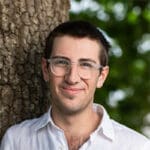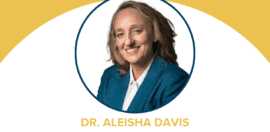Prevention, Advocacy, and Growing The Power of Youth Voices

12 September 2025 at 9:00 am
As the Chief Executive Officer of NAPCAN, she has an in-depth understanding of the issues that impact families. She holds a Bachelor of Social Science (Welfare), Bachelor of Law (Honours), Graduate Diploma in Legal Practice and a current Australian practising certificate from the NSW Law Society. She also recently completed her Australian Institute for Course Directors Course.
Leesa currently lives in regional NSW and has worked nationally across regional, remote and metropolitan communities. She is passionate about the power of prevention and is a strong advocate for respectful relationships education for children and young people.
Describe your career trajectory and how you got to your current position.
I went into teaching straight out of school and, after a year, decided it wasn’t for me. However, during that time I found I was compelled to help some of the kids who were struggling with the system, something that has since underpinned my career trajectory. I went on to do a social science degree while working at correctional facilities, followed by youth services. It was here I recognised that supporting change is really complex and difficult, unless you are able to get in there with positive interventions earlier.
This revelation later led me to the state child protection department, where I worked in various roles for 25 years, and during which time I also completed a Bachelor of Law (Honours). My Honours thesis argued for reforms to the ways in which children’s voices are considered in the Family and Children’s Court of Australia. I have always been amazed at how voiceless children are in spaces that directly impact them, and I continue to be passionate about finding ways to elevate the youth voice.

What keeps you going in your work?
The safety and wellbeing of children and young people is the responsibility of adults. Unfortunately, and over many years, I have seen first-hand what happens when we collectively aren’t there for children. I feel fortunate to be in a position to be able to advocate in this space, and to share the message of prevention. I am driven by the belief that if families and children do it a little easier because of the work and advocacy of our team, then it has to be worth it. The journey continues because there is still a huge amount left to be done.
What do you think makes a strong non-profit leader?
Leadership in our field requires a genuine passion for the cause and an openness to collaboration. There needs to be collective understanding about the importance of listening to those people with lived experience, as well as to communities. It requires a genuine understanding of how different demographics are impacted; for me personally, I am always flying the regional flag, and lifting up the voices of children and young people. Leadership involves making very hard decisions at times; it requires honesty about what is and isn’t possible. But it is important to always bring your team with you on the path forward. I am not afraid of asking for help, and can manage on a very tight budget. I’ve needed to stay strong when funding doors have closed, for example, but remain strong about the future and committed to ensuring the energy of my team is one of hope and purpose.

If you could go back in time, what piece of advice would you give yourself as you first embarked on your career?
It’s OK to say no sometimes. You don’t have to be all things to all people.
How do you unwind after work?
I’ve participated in a lot of triathlons in the past, although years of running has left my knees protesting… So now, running has been subsidised by swimming, cycling, yoga and motorbike riding. I like to push the boundaries of what I can achieve.








